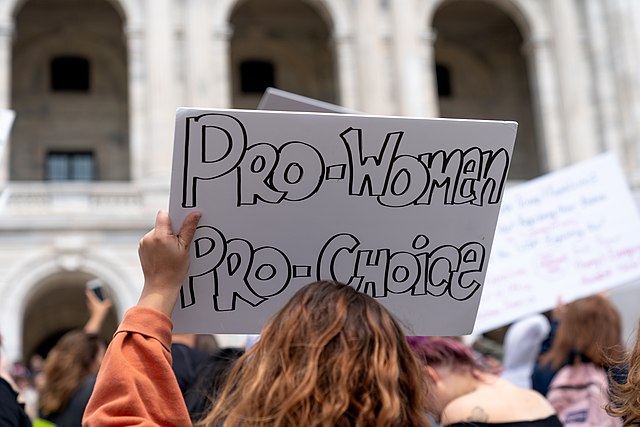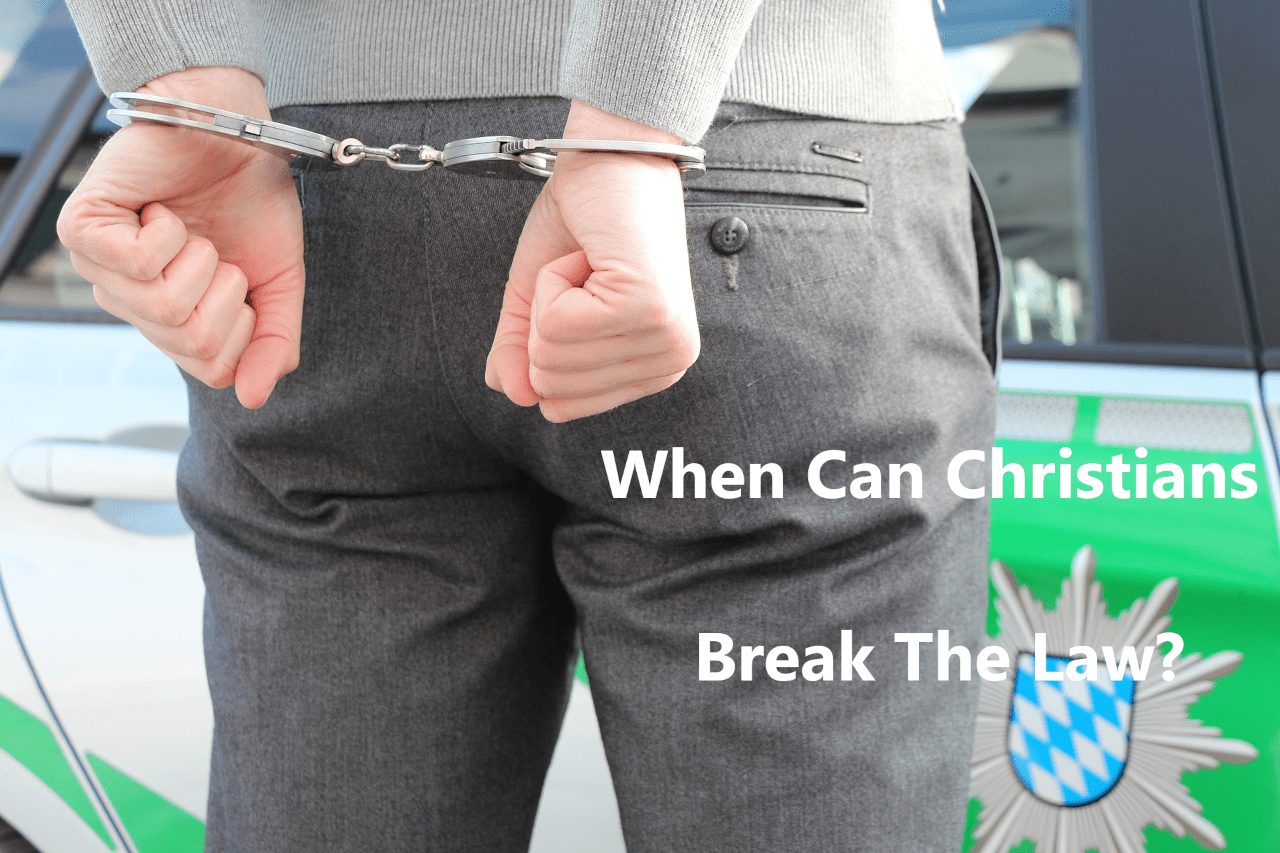Answering Common Pro-Choice Objections
With the recent overturning of Roe v. Wade here in the US – which declared that abortion is not something granted at the federal level by the Constitution – there has been a regular onslaught of memes, TikTok videos, and other forms of objections leveled at the decision and the Pro-Life position. The case for life is a strong one with an airtight argument. Despite all of that, the objections leveled by the Pro-Choice side can be rhetorically powerful and often present a challenge to us. In this post, I will go through a handful of the more common phrases I have seen and walk through why they don’t offer much of an objection at all.
“You can’t tell a woman what to do with her body”
Also known as the “My Body, My Choice” slogan. One thing Americans love is our freedoms. It would seem wrong to tell someone they could not get a tattoo or pierce their ears or wear their hair a certain way.
However, telling people what they can and cannot do is, in fact, what most laws do. They tell you what you can and cannot do with your body. Most laws regulating what you can and cannot do with your body have to do with your body’s interaction with someone else’s body. For instance, I cannot use my body to commit bodily harm to my wife. That would be assault. The law also tells me that I cannot use my body to engage in sexual intercourse with anyone I want to without their permission. That would be rape. Also, if someone gets into a fight with a pregnant woman, and the baby she is carrying dies, most states consider that a homicide (which points to the fact that the thing growing inside of her is, in fact, a life with rights).
Besides the above point about the nature of laws, I’d like to point out a few highly publicized events in the past two years where people certainly did think the government could tell them what to do with their bodies. The first would be federal mask mandates. For over 18 months, the federal government told its citizens that they must cover part of their bodies in order to protect their lives. And, when people objected and said that the government could not tell them what to do with their bodies, the governmental response was the mandates were also to protect the lives of those around them.
The second highly publicized incident where the government thought that they could tell someone what they could and could not do with their bodies was when Derek Chauvin put part of his body (his knee) onto part of George Floyd’s body (his back) and Floyd died. The public felt so strongly that Chauvin shouldn’t have used his body against Floyd’s body that there were days of riots across the country where buildings burned, people were injured, and several additional people died amidst the protests. And, the government eventually told Chauvin that he couldn’t do with his body what he did with his body and they sent him to prison.
So, yes. The government can – and does – tell people what they can and can’t do with their bodies. The question to be asked is what is it that you are trying to do with your body? In most cases, the laws involving your body have to do with its interactions with someone else’s body. In the case of abortion, the act being committed is the killing of an innocent, distinct, and whole human being. And, the government has a lot to say about that.
“Stop Shoving Your Religion Down My Throat!”
I covered this objection at length in an earlier article, but the truth is the Pro-Life position isn’t formed primarily from the Bible. And, the Supreme Court justices didn’t cite a single line of Scripture when writing their opinions. They didn’t make abortion illegal; they simply said it was out of the federal court’s jurisdiction to decide on.
Just because the decision was certainly consistent with what the Bible says doesn’t mean that was the basis for which it was made. The Pro-Life case is made from the scientific observations about what is growing inside of the woman, what the abortion procedure does to it, and a fundamental level of objective morality that we all possess whether we subscribe to a “religious” worldview or not.
“More women will seek risky, illegal, back-alley abortions now and possibly die”
When people offer this up, they are trying to say that we should legalize a certain behavior because people are going to do it anyway and they’re going to get hurt in the process. But, this is nonsense. Laws are often put in place for our safety and for the safety of those around us. What if we said “you know, that deadbolt you have on your door could potentially injure a thief if he wanted to break into your house. And, we don’t want people getting hurt. So, we’re going to outlaw deadbolts so the thief doesn’t get hurt when he wants to come in and take your stuff”.
This line of reasoning is nonsense. Should we also outlaw pepper spray because it hurts the attacker’s eyes? Should we leave our cars unlocked because we don’t want the thief to injure himself on broken glass when he shatters the window to steal our car? It’s obvious how silly this is. Laws are put in place as a deterrent. Making bad things riskier is a deterrent. Are there some that will still engage in the bad activity? Sure. But it will discourage a lot of people from taking part in it.
“Don’t like abortion? Don’t get one”
This objection relies on the notion that we should let people live their lives however they chose. And, if we don’t like some activity they partake in, we have the choice not to partake in it ourselves. What they do with their lives isn’t affecting me, so I should just let them alone.
OK. How about this?
“Don’t like slavery? Don’t own a slave.”
What if I said that? What if I reworded the objection with “slavery” instead of “abortion”? You don’t have to own slaves. Me owning a slave doesn’t affect you in the slightest. If I said that, you would (rightfully) call me a monster.
See, the action that people don’t “like” matters. Not all actions are equivalent. Another key similarity to the abortion and slavery comparison is that the action we are objecting to involves a second life apart from your own. The notion of slavery repulses us because we know that another life is being affected. Another person’s rights are being infringed upon. So does an abortion. The result of an abortion is the end of a life. An abortion isn’t the same as getting a tattoo or even doing drugs. It affects another human being’s life. Just like slavery does.
“Would You Force A Woman to Give Birth As A Result of Rape or Incest?”
This is one of those objections that really does pull at the heartstrings. It’s also one of the most popular objections that get used when having this discussion. And, it’s easy to see why it is so rhetorically powerful. In the case of rape, the pregnancy was forced on the woman. This isn’t one of those cases where the woman suddenly realized she “made a mistake” and is using abortion to correct a bad decision. These are the cases where the mother didn’t have a choice. I really do feel for these women.
Oftentimes, when you are trying to get something resolved between two parties, you have to compromise. So, if we have to compromise on the rape objection to get the other rationales off of the table, I would begrudgingly do it.
And here’s why.
According to the Guttenmacher Institute – the research arm of Planned Parenthood – only 1% of women report they had an abortion as a result of rape. And less than .5% said it was because of incest. That means 99% of abortions would be off the table.
Every year, the CDC requests that states report their abortion statistics. Most do. California, Maryland, and New Hampshire do not. In 2019, there were 629,898 abortions reported (can you imagine the total if California reported?). That means there were 1725 reported abortions in the United States per day. So, if we accepted a compromise and allowed for abortion in instances of rape, that means 623,599 abortions last year would have been off the table.
When an abortion is performed, a choice is made to end the life of an innocent human being. So, a value judgment is made. In terms of the life formed as a result of rape, does that life have less value than someone who was conceived consensually?
Also, think about it this way. If a woman is raped, then she absolutely deserves justice. But, if the rapist is caught and punished and the mother has an abortion, the father received a prison sentence but the unborn child receives the death sentence. How is that justice?
“You only care about them until they’re born and you don’t care about the mother afterward.”
This accusation often gets levied as if to say that Pro-life people only care about the life of the baby so far. This may seem to be true due to how vocal people get over the topic of abortion and how little discussion there seems to be about care after the baby is born. But, just because there isn’t a lot of noise being created around the topic doesn’t mean something isn’t being done about it. That Pro-Life people don’t care about the mother or the baby after the baby is born is just false. Crisis Pregnancy Centers – centers that give mothers training, supplies, and support should they choose to give birth) outnumber abortion clinics 3 to 1 in most areas. That means there is more support for women who want to keep their babies than those who want to have an abortion.
Many Christians also support mothers and their children directly or indirectly through their offerings at church. Families are supported indirectly by donating money to places like CPCs. Direct support is given by having resources there at the church should a family be in need Special collections are also taken frequently to meet a specific need that has arisen. So, just because people don’t make a big hoopla about something doesn’t mean it isn’t being done.
Objections Overruled
Believe it or not, I actually understand the motivation behind most of these objections. Most of them are centered around the mother and her well-being. Most of the Pro-Choice crowd really does have a heart for the mother and the effect a new child will have on her life. Keeping the mother in mind and having a heart for her is important.
But, do any of these objections justify killing an innocent human being? Not even close.
Share This Story, Choose Your Platform!
latest video
news via inbox
Nulla turp dis cursus. Integer liberos euismod pretium faucibua








I liked this article because it touched on many opinions and arguments that I have the same views about. Although something I always struggled with was abortion in the case of rape. Even if it is only 1% I struggle to agree that they should absolutely not be allowed to get a abortion if the wanted too. This is something I wrestled with when forming options about abortion. I tend to be pro life but there are exceptions that keep me from wanting it to be completely illegal. In the article a quote that got me thinking was “But, if the rapist is caught and punished and the mother has an abortion, the father received a prison sentence but the unborn child receives the death sentence. How is that justice?” This has made me think more about these scenarios and although I don’t think I could form a complete unchanging opinion about it I am able to look at it from a new perspective.
HI Amber,
Abortion is a really emotional topic. And we should not act as if it is an easy decision to go through with if the mother chose to do so. But, I’m glad I gave you something ot think about
Thanks for your comment
I thought that this article was really compelling to think more deeply about the different arguments that others may have about abortion. The fact that this addressed so many different things that pro-choice people believe and say was really cool so that we could see different perspectives on the same questions.
When addressing the question of what if a woman is raped there was this quote- “But, if the rapist is caught and punished and the mother has an abortion, the father received a prison sentence but the unborn child receives the death sentence. How is that justice?” This quote really spoke to me because I think oftentimes we think about the case of rape as just tragic for the woman and getting an abortion is only fair because she had no control over what happened to her, but we often forget about the justice that isn’t brought to the baby. The rapist yes may be caught and sentenced to life in prison but what justice was given to the life inside of the woman? Well, none was given to the baby. I thought that this point was really interesting and I hope that others can hear this and think deeper about the effects of abortions.
Hi Avi,
Great observation. Glad it gave you something to think about
Thanks for your comment
This article and the theme of the article have always been interesting to me since it has been something controversial. However, I would like to argue back on the opposing side. This is my opinion and I ask that you don’t fight back under another comment. I respect the comments above me and I wish to be respected as well. In my opinion, abortion should always be available to the mother of any child. These are basic human rights and abortion was something that existed for years long before now. The child inside the mother has not even been made yet and it is fair since the baby is not even alive. How is it murder if the baby hasn’t even developed? Not only this but there are parents that are not ready to have children, having this child while the mother can still be in high school or even middle school can potentially kill them because of the high risks at dying at childbirth. Most teen moms haven’t had a developed body enough to even have a child. Women deserve the right to be able to have a child when ready to.
Hi Anonymous,
You seem concerned that your opinion won’t be respected. Abortion is clearly a very emotion issue. What do you think we can do to have more productive conversations about it?
Thanks for your comment
This article answered some of the questions I’ve had about abortion and the laws that we should have against it. When thinking of abortion, I always found myself to be pro-life because its unjust and unfair to kill an unborn child, just because its inconvenient for you or you don’t want it. But this also leads me to think of different scenarios where the pregnancy is forced onto the woman because of rape or incest. This article mentioned that “only 1% of women report they had an abortion because of rape, and .5% because of incest”. Sure these percentages may be a little low and may not consider those who are scared to admit they were raped or forced into incest, but still the percentage is extremely low. This means that 99% of women are willing having an abortion due to personal wants and convenience. This is where I think abortion is wrong. You cannot just realize you made a mistake and try to undo it by having an abortion. You need to live with the consequences and own up to your mistakes. Killing an unborn baby is an unacceptable answer to a problem you got yourself into. The baby has done nothing wrong, and gets killed for your mistake. The least you could do is give birth to him or her and put them up for adoption, but killing them should never be the answer.
Hi Anonymous,
Totally agree!
Thanks for your comment
I chose to read this article because it’s a topic that I’ve always had questions about. I agree with what most of this article is saying and it answered a lot of questions that I had before.This is a really serious topic that I think you explained very well and helped me to understand better.
Hi Madelyn,
This topic is more important than ever right now. I’m glad I could answer some of your questions and provide a little clarity on the issues.